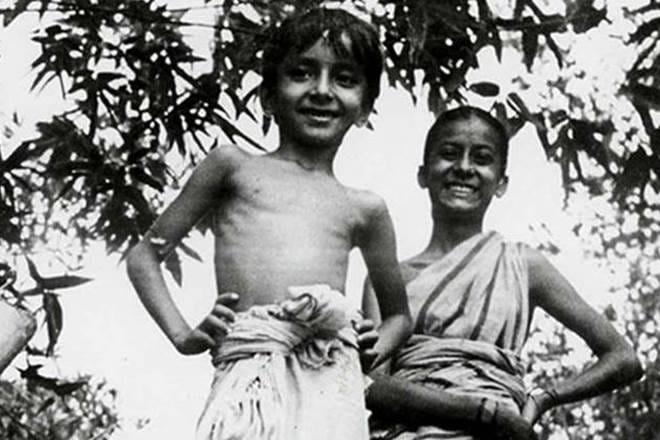I was living in Singapore as the COVID-19 pandemic unfolded. As the government announced the strict lockdown would be extended and my job prospects dwindled, I decided to return home to Sydney. There was only one barrier left: mandatory hotel quarantine.
As expected, quarantine rules were absolute. I had an army escort to my room. I ate what I was given, when I was given it. The windows did not open, and so I went without a breath of fresh air for fourteen days.
The one thing I did not see coming? How happy I was.
I later spoke to others who went through hotel quarantine and realised I was singular in having enjoyed my confinement. I didn’t blame them as I scarcely understood my own psyche. But I would later read Pather Panchali and was struck by the curious parallels between my quarantine life and those of the two siblings, Opu and Durga, in a Bengali village in the early twentieth century. What resonated with me was how the children were not defined by what they lacked.
While the corners of my hotel room limited my existence during this period, it is poverty that tangibly limits and shapes the children’s physical lives. They must pluck thorns from their feet as they scamper about without shoes and obsess over food because they have so little of it.
But like those village children, I found joy in my small world by looking inwards. With the same care Durga had with her few possessions that she kept neatly in her dolls box, I rearranged the furniture to my liking. And like a magpie, I kept the room obsessively clean and tidy. Just as Opu wandered through the village to find friends to play cowrie shells with and Durga roamed the forest for hours in search of wild fruit, I also found pleasant ways to pass the time by reading old copies of the London Review of Books and sketching various objects around the room. And in the way the siblings eagerly awaited festival days, I too created rituals for myself such as using a particular pen to cross off the days on my calendar as I counted down until I was free.
Should I fall upon hard times again, I will do my very best to summon Opu and Durga’s spirit. They displayed an instinctive ability to treasure what they have. Namely, each other. There’s a beautiful passage where Opu sees his beloved sister as a goddess. I love these characters intensely for insisting on their birthright as children to dream expansively: ‘He was sure beyond a doubt… that life held in store for him the fruits of all happiness [that] would be there by the roadside for him to pluck. It only remained for him to grow up.’
Bibhutibhushan Bandyopadhyay’s semi autobiographical work is widely considered to be an Indian masterpiece. It is a treasure for capturing life from another era and an enduring lesson in how to live with hope and grace in times of hardship.
Shop the book on Amazon.
- JM
Disclosure: this blog includes affiliate links which means if you follow the link and purchase the book, I may earn some affiliate commission. However, it does not affect the books I recommend or the price you pay. Thank you for supporting this blog!





That's joy.
Great ! Surprised to see your interest in our time books which I never dare to read. All the best and keep writing.